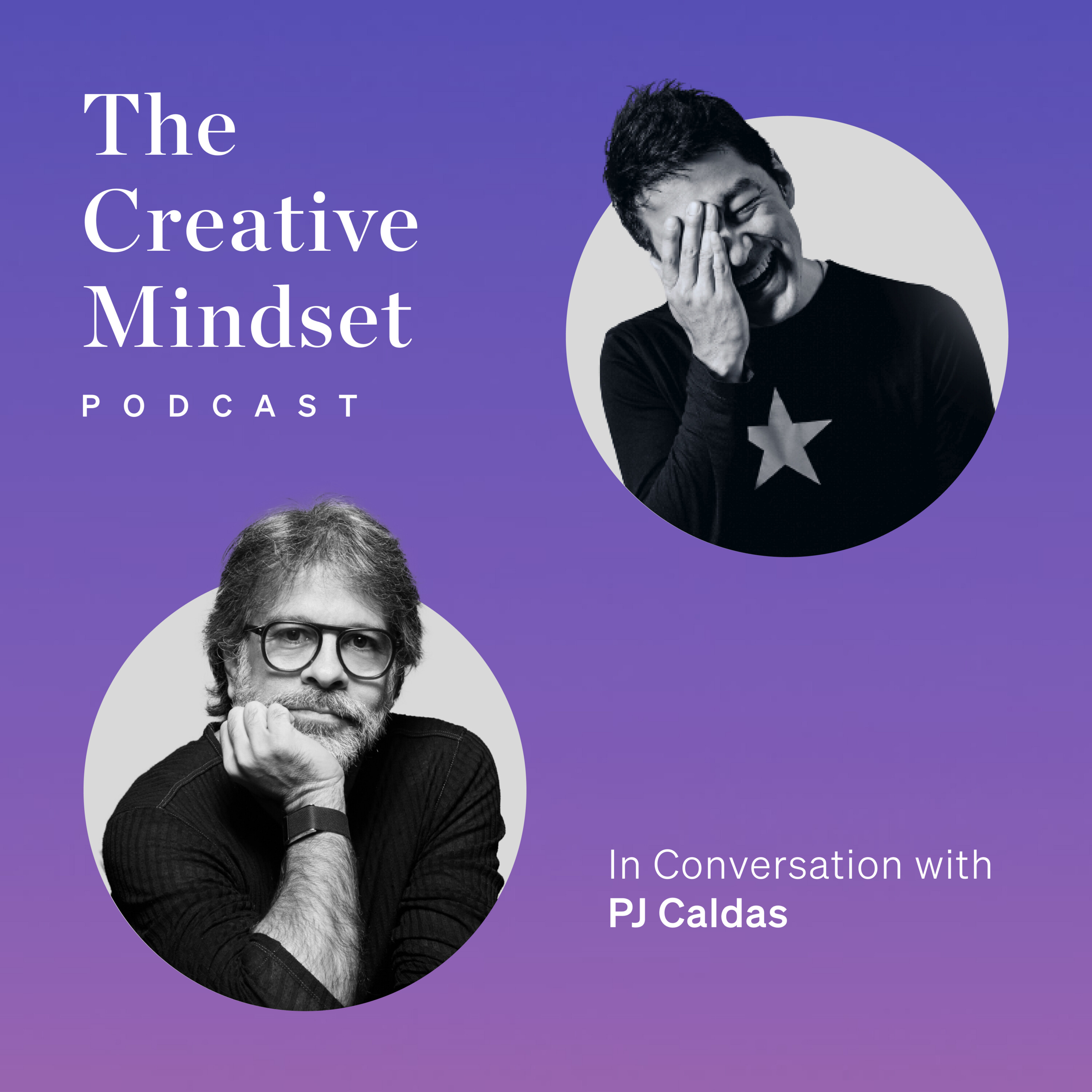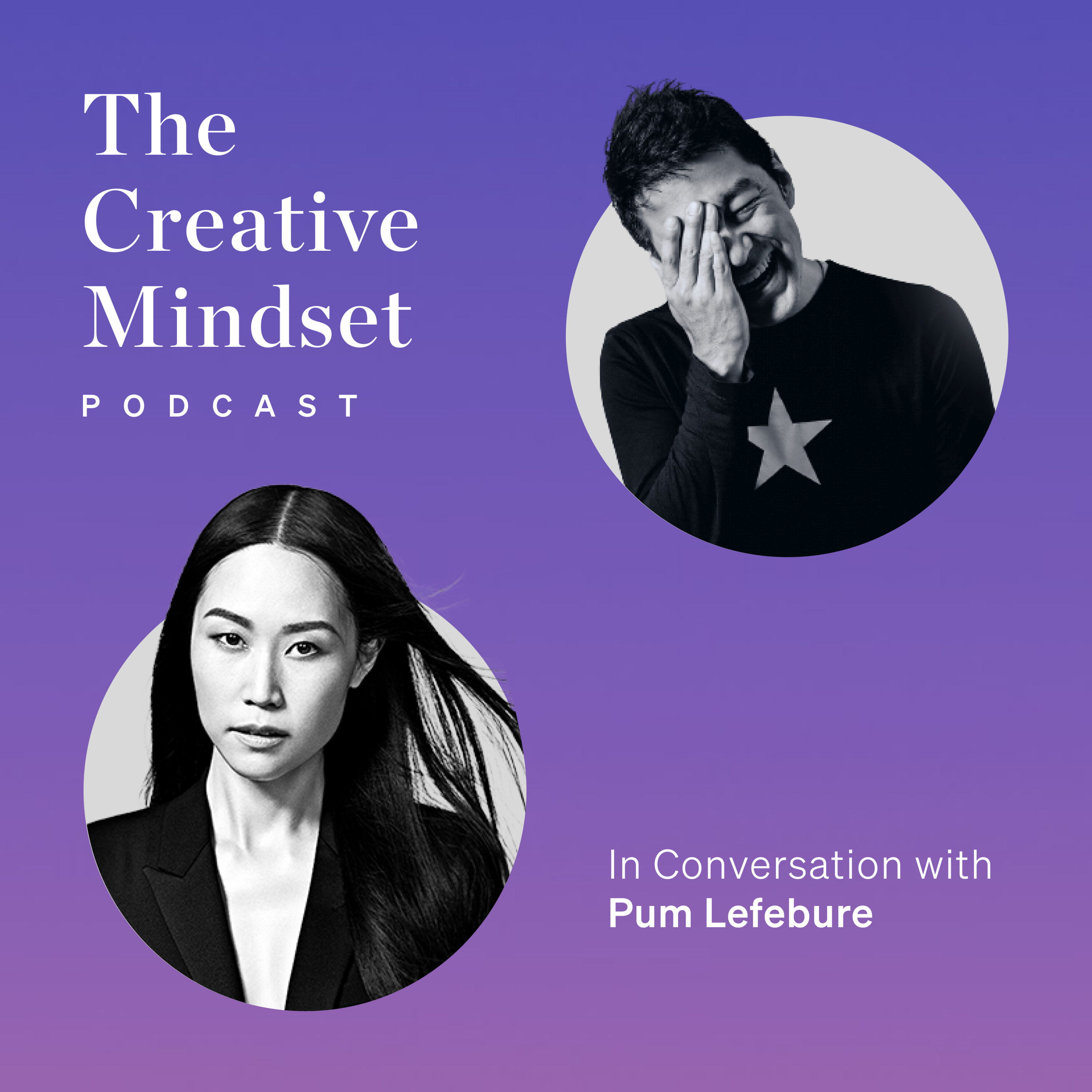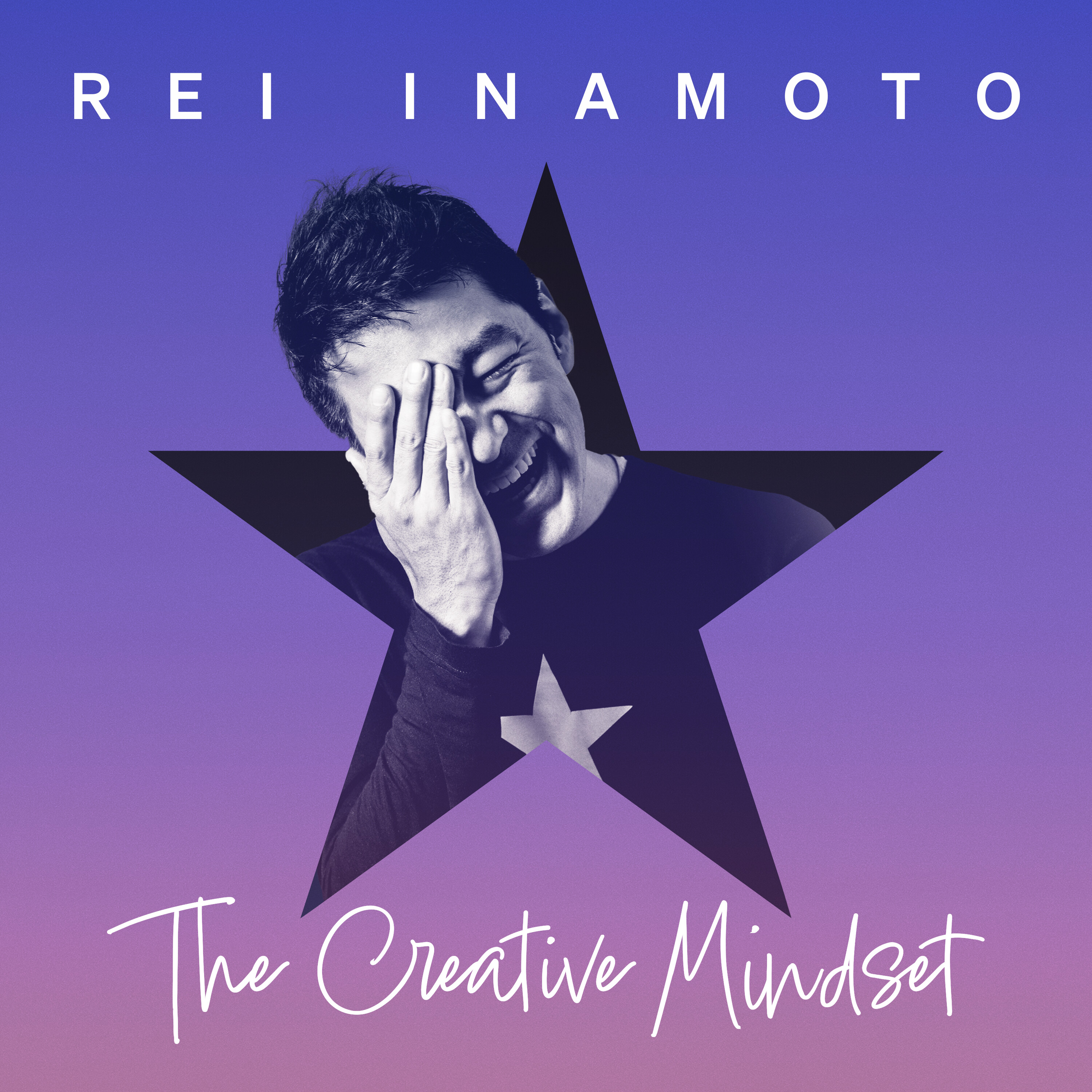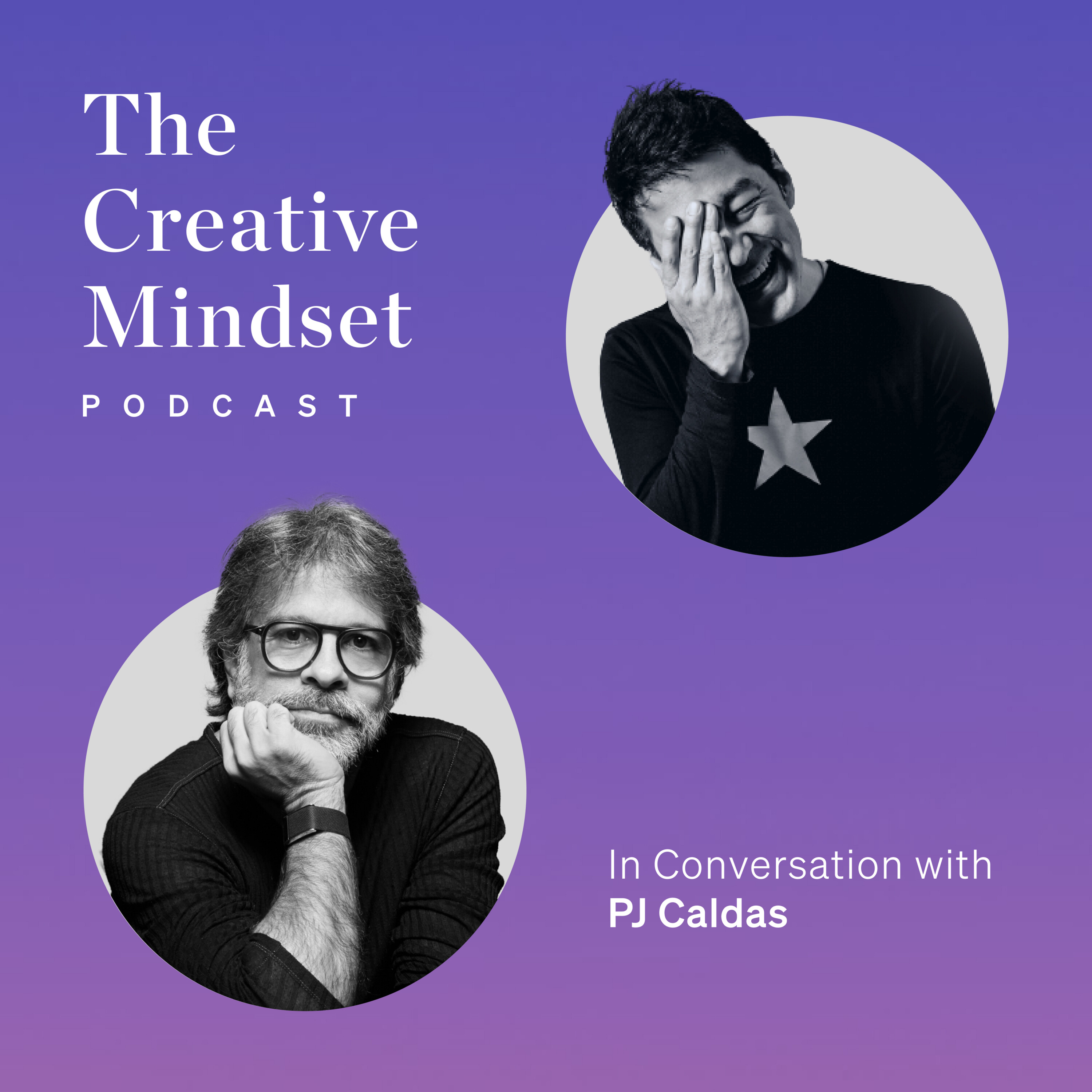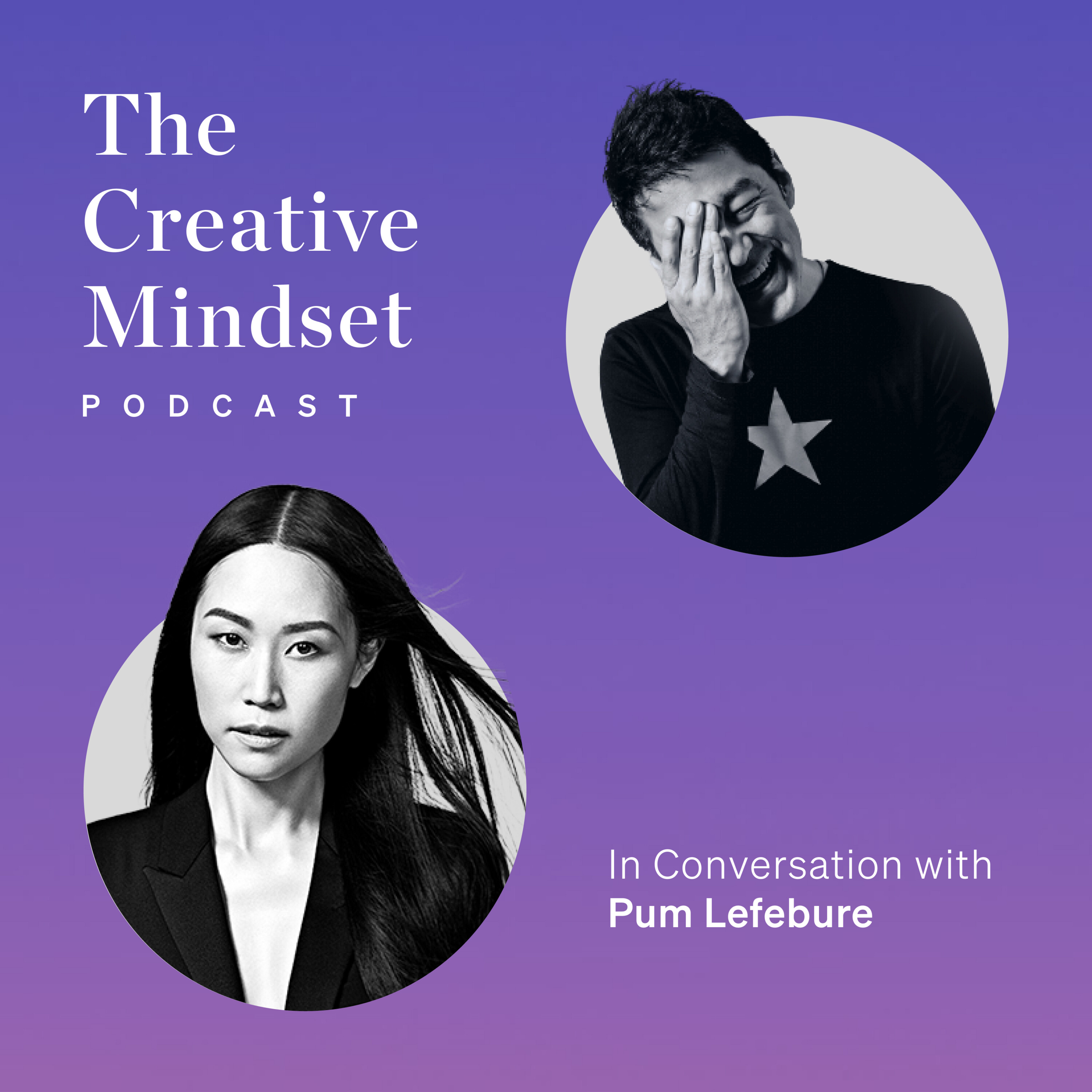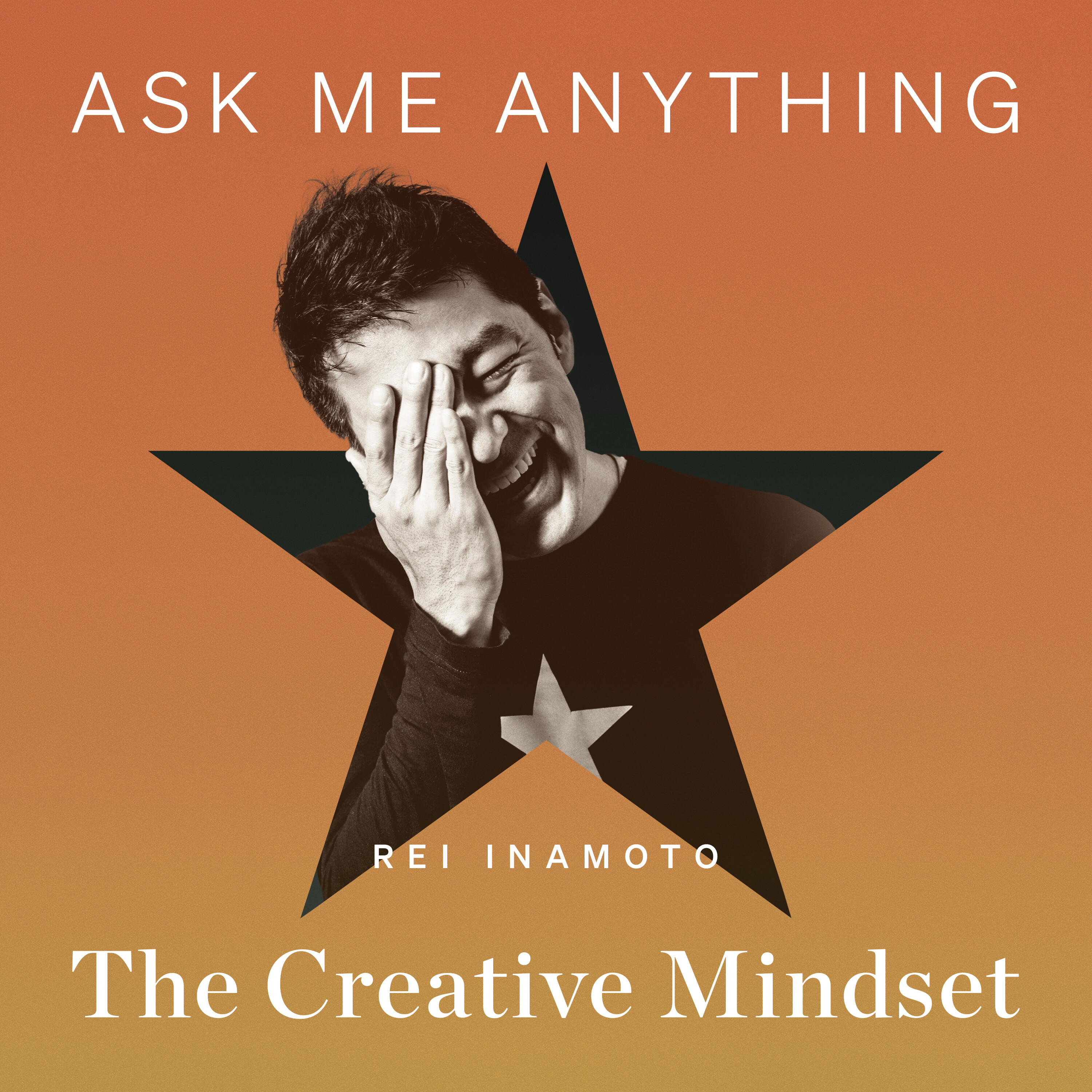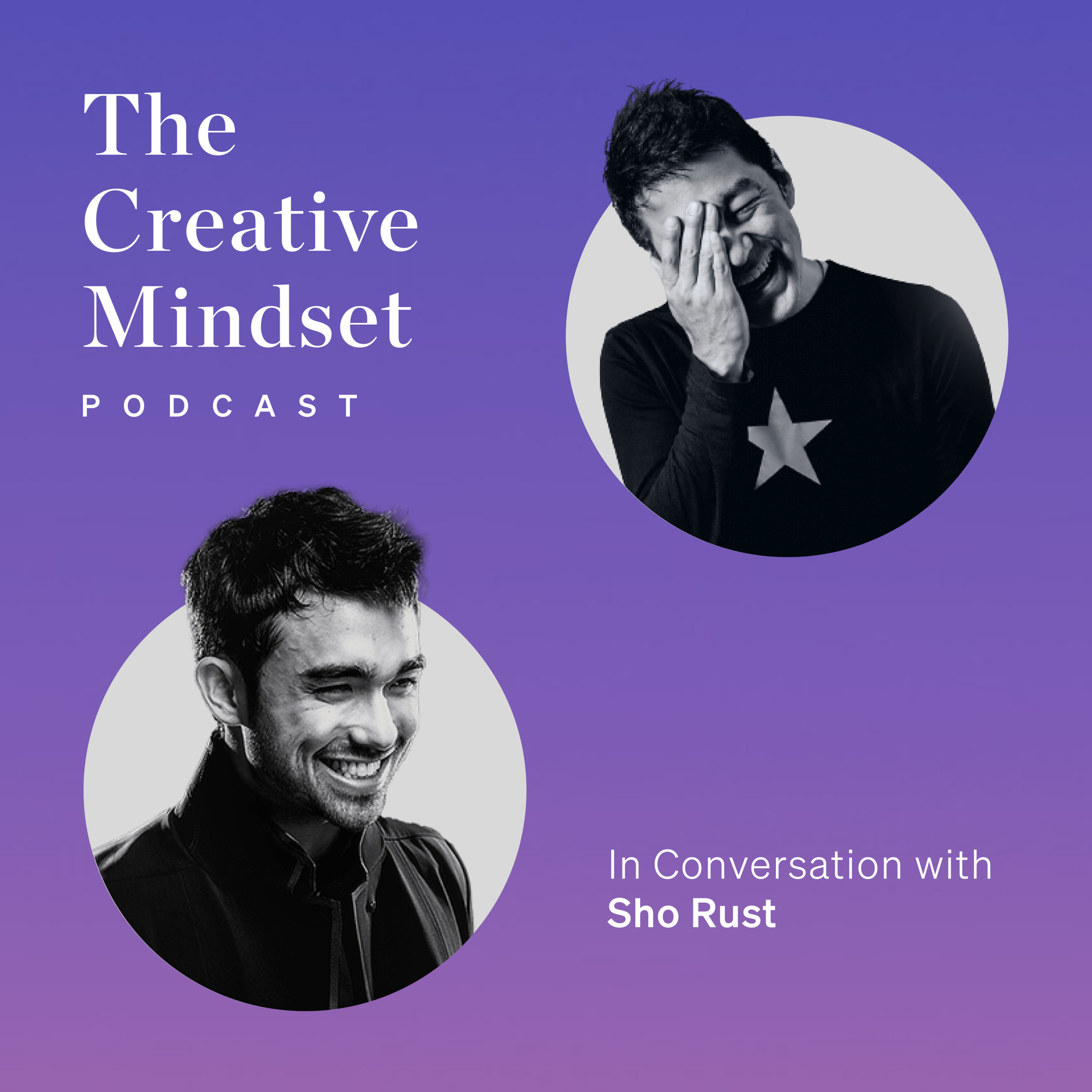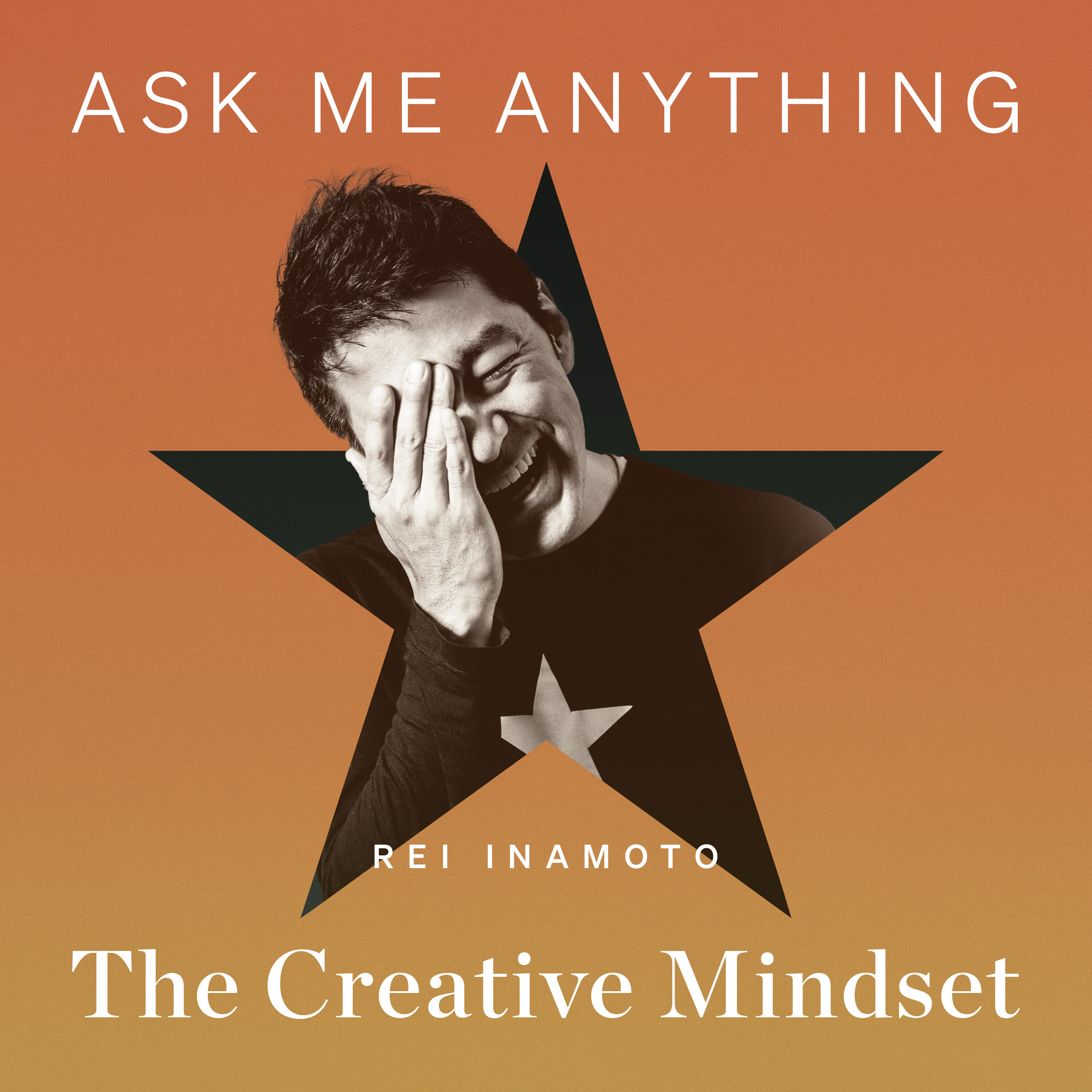This is Reinamoto's podcast, The Creative Mindset.
Hi, everyone. Welcome to The Creative Mindset, a podcast about what the future holds at the
intersection of creativity, technology, work, and life. I am Reinamoto, the founding partner
of I&CO, a global innovation firm based in New York and Tokyo. Today's episode is part
one of my conversation with P.J. Carlos, a best-selling author originally from Brazil,
based in New York. He's been publishing books since around 2010 in his native country.
His books are novels based on various types of mythology. His latest book called The Girl from
Udan is being published this fall. It's also his first book in English. Here's a brief description.
From Emmy-winner Brazilian best-selling author P.J. Carlos comes a story about immortality,
martial arts, and AI that will make you change the way you look at life,
science, and the crazy times we are living in. My name is Tigre and I am immortal. This is my story.
The reason why I wanted to talk to P.J. was because he's been actively experimenting
with AI for creative activities such as writing and producing imagery. Recently,
he's been using AI to produce his book cover, promotional videos, and other merchandise.
I wanted to get the story and the insights behind his process. Before we get into our conversation,
a side note about P.J. and I. We also go back a long time to 2006 when we were creative partners
at an agency in San Francisco. Subsequently, he started his own company and we'll get more
into that in the next episode. So here's part one. Let's get started. You know, we've been
working in the same industry and, you know, we've had a long time relationship. But today,
I'm actually excited to interview you for the first time as P.J. Carlos, author. And not just
any author, but best-selling author, particularly in your home country in Brazil. Tell us a little
bit about your upcoming book, The Girl for Mudan. So this is a story that I've been working on for
almost 10 years now. And the different facets of my life are part of it. You know, I have my
job in advertising. I have my hobby that became a job, a second job in writing. But also, I always
kind of did martial arts as well. So one day, two different stories have started to
to happen in my head. One story was about Kung Fu. That's how I started in martial arts and how
Chinese martial arts is very inspired by animals and learning from animals. And I felt like, yeah,
there's something very cool about how they're all individual animals, but there's nothing
about the animals that operate in packs or in hives or in large groups like ants and bees.
And I'm always fascinated by those groups. Like, I want to write a story about that. I started to
think about how it would be a Kung Fu style based on bees and ants. That was like one part of my
head, but I couldn't figure that out. There was another part of my head thinking about
how machines and brains could connect. You know, what happens if artificial intelligence
starts to develop too fast and how could we overcome that and balance it out? Because
technology is in the AI brain because the AI brain can be considered the brain in one machine
or the combination of all the machines created by AI. So AI is more scalable than our brains.
So in theory, it can be, eventually it's going to get smarter than us. And the only way that
we may have to outsmart this growing AI is if we found a way to scale our brains as well.
So I started to do research, like what kind of story could be there? And then I found this
researcher that was doing, there was a guy that is at Google actually, and he's doing some research
based on other researchers. And it's one of those academic things that grow very fast. But the
thought was that what if we put a layer of fake neurons around your brain, right? And then put
the same thing around someone else's brain and then start to connect the outside of your brain
with the outside of my brain and our brain starts to operate as one. And we do some training and we
feel like, oh, that's fascinating. That could be a way for the human race to gain scalability.
So in the process of writing and publishing this book, and you've been fairly active, especially
on your own Instagram and other places, you've been publishing, particularly the artwork of
the characters and then the trailers of the book. So how much of that is an experimentation versus,
I guess maybe there isn't a clear line between experiment and the real thing,
maybe because the experiment is the real thing. Yeah. But again, just for the sake of our
listeners, tell us about the areas in which you are actively using AI to produce.
I have made a commitment to myself that I would use, because the book is partially about AI,
that I was going to use AI in everything except for the book itself. The writing, the book itself,
the story itself is 100% mine. With a little asterisk that I can get into later. But all
the promotion of the book, I was going to do as much as possible with AI, pushing the limits and
whatever is the last thing that AI is doing, I'm going to use it. I'm going to try to
turn that into an experiment. So from a personal standpoint, the promotion of the book becomes
a lab for myself. It's a laboratory that allows me to understand the possibilities of telling
stories with AI. I did a lot of research to see if I could find anything, but apparently the first
book trailer produced with generative AI was the thing that I did first. And I didn't do it by
myself. I actually hired AI animators to work with me because the interface for these things is too
complicated for me to do. So I worked with them and understood the process, and I worked with
animators to get them done. And I'm starting to feel a little bit more comfortable doing some of
those things myself. But because I want to push the limits, I'm bringing specialists to work on
it. But even like music, when I did the first trailer, there was no music generated in AI.
So there were no tools completely doing it. Now there are some, like two or three months later,
there are some tools that are creating music from scratch based on a prompt. But at that point,
there wasn't. But I still talked to musicians that were friends of mine and said, hey, how about we
try something? And they found this one app that would create a musical series of notes, just a
core melody that we could use. And they used AI to compose the core phrase of the music,
and then they composed everything around that phrase. So as much as I can, I'm pushing the
limits. So the next trailers, so on Monday, I'm shooting a new sequence. Because one of the new
developments is that there are incredible technologies right now that take video footage
and turn that into animation. The coolest thing that is happening right now, most of those tools
are still in alpha test, but I have access to them. So I'm shooting a few Kung Fu choreographies
in China on a green screen. And I'm going to run that through an AI machine with an AI animator
that is working with me in Europe. And then I'm going to do all the music here through AI
here in the US. And I'm going to turn into a series of trailers. And I have five or six
lined up already. And it's going to look pretty cool. The tests that we have done, they look
amazing. And it's not that we have planned. It's that every time a technology evolves,
it gives you new ideas of, oh, I can do that to distribute. So I'm trying to use the development
of the technology as a way to generate new ideas to promote the book. But the most fascinating
thing for me, and that was a big aha for my other parts of my life, for the advertising
world and everything, is how I'm treating almost this as a prototype for a bigger idea
that I think is that this is opening space for smaller players to compete against bigger players.
So in my delusional mind, I think about this. What if I could promote this book
as if I were promoting the next Star Wars? How can I just create that level of excitement?
It doesn't need to be the same level with millions of people like Star Wars does. But
if I could get a smaller group of people to create that level of anticipation of something big
coming, how can I use AI to elevate the volume and the production value and the feeling that
this is going to be big so I can compete with big blockbuster Hollywood? And it seems to be
happening. And when I see the reactions that the audience is having, it feels like, oh,
this is a big deal. They're treating that as a big story. I mean, hopefully they're going to
like the book as well. And we're going to see that in October. But I think it's possible that through
AI, we reach a revolution in terms of how we give big storytelling opportunities
for smaller players in every industry. So then you are using AI to come up with essentially art
direction, right? Yeah. And then you're using that to apply the art direction to the green screen
footage of a martial artist that you've shot. And then you're then giving that to an animator
to apply the art direction to the video that you've shot. Now, is the animator also using AI
to essentially apply that to the footage automatically? Or are they doing a lot of
manual labor to do that? Like, what's the balance? Yeah. Right. So this animator is basically
studying the forefront of these techniques and the possibilities to know how to make them
look right. And he does that to me. There's a trick, though, and it's not really a trick,
but it's almost a realization that comes to it that is, I think, is important. That is a metaphor
that kind of happened, I realized, that as we were doing this. And it was an important aha for
more. And I think it's going to help a lot of people that are trying to understand these new
technologies. You have used Photoshop your entire life, right? So Photoshop is a very reliable tool
because if you know how to use it, you tell it what you want and it will do it, right?
So think of Photoshop as a bicycle, right? It does what it needs to do. It runs faster than it can
go faster than what it can go by yourself, can do things that you can't do by yourself. But still,
your legs are pedaling and it will do everything you do.
Doing that same work with AI is like going from a bicycle to a horse, right? That you have way
more power between your legs, but the horse is going to make some decisions by itself.
You have to learn to communicate with the beast to be more in control. If you don't
communicate with the beast, the amount of control that the beast will have is going to be higher
than yours, right? If you don't know how to ride the horse, like I don't, the horse is going to do
whatever it wants. I'm just there going with it. If you're really good at riding horses and if you
and the horse have a good relationship, you can do it. The horse operates almost like a bike in
terms of a tool, but there's an emotional connection and the two of you work in tandem.
I think the way I look at AI from a creative standpoint today is that it's a horse that you
operate in. Depending on your communication with it, it's going to feel more like a tool
or more like a partnership. But if you don't, you're just mounting on the horse and letting
the horse do the work job. It's mostly the job's work, not yours. I'm using this process to try to
develop a way to understand how humans can collaborate with AI in a way that we have more
control. Are you using tools like ChatGPT to actually create the narrative of the trailer?
Or is it you and the animation technique that you keep going back and forth? Is it you
thinking of the script for the trailer itself? The script and the voiceover and everything is
still me. I tried to play with ChatGPT to get there. I didn't like the results, so the writing
is still mine. Why is that? I guess you as a writer, you felt the limitation that you weren't
quite satisfied with the quality of the story, if I'm interpreting what you're saying. So tell us a
little bit about why not use ChatGPT to actually write the story, at least the trailer.
I think that there's, from a creative standpoint, the sophistication. And this caught me by surprise.
If I had to think about it, if someone had asked me five years ago, say, all right, creative tools
are going to invade the creative process. And they're going to be visual tools and they're
going to be writing tools. Which one do you think is going to reach a cool,
kind of a sophisticated level first? I would say writing for sure. But it's actually the level of
sophistication, the level of taste of generative AI on the visual is way higher than on writing.
A few weeks or even a couple of months ago, I noticed a blog post that you had written.
And in it, you were talking about, you were asking, I believe, ChatGPT to come up or help
come up with a story, right? Or a portion of the story, whether it was for the book or something
else. And you mentioned that you kept pushing it in order to make the storyline better.
But then all of a sudden, the AI tool gave up. What were you trying to do? And what was it
that made the AI give up? It was a funny story. What happened was that I was testing it because
I had committed so much of my attention to it. I got a little obsessed, let's say, with all
these generative AI possibilities and everything when ChatGPT was lost. Let me see if it can write
or not. I mean, the book was already finished and done and fine. So I was playing with something
else. So the challenge that I gave to myself is, can I make this ChatGPT write a short little
story? And I started to poke ChatGPT to see if it would tell me what we would do if it became
sentient. But it was the engineers behind that kind of worked really hard, apparently, to avoid
these questions. They're just trying, no, no, it's not. I'm just a computer. I'm just a computer
program and all that. So ChatGPT, help me tell a story about an AI just like you that became
sentient and decided to run for Senate, the human Senate, and won the election.
And I said, okay, I can do that. I decided to tell the story. I was like, yeah, keep going.
Tell the story, keep going. About the third or fourth time that I said, keep going,
the part of the story was that. And then the computer just left the... It was something
about how the robots or that being left the computers to go somewhere else. And then it
stopped. And I stopped there for like, holy shit, this probably... I mean, there are three
possibilities here. One is that there was a ChatGPT sometimes get overloaded and it collapses
and stops. Maybe that's what happened. Option two is that maybe ChatGPT developed a very mean
sense of humor and did that just to mess with my head. And option three is that it kept thinking
about it and had the idea and started to enjoy the idea and just left. Minutes later, it came back
and it was... I couldn't retrieve that same conversation, but there were like five minutes
that's like, okay, what is happening here? And it was like, okay. At the very least was a very
ironic twist from the AI gods, a very funny joke that they play on me.
So I guess, you know, for the time being in 2023, ChatGPT or these writing AI tools,
if I understand you correctly, aren't good enough yet, at least for the standard of PJ Carters,
the writer, the professional published writer, it's not there yet. It sounds like it's actually
within a fairly close future. It may be possible for AI to collaborate on a book
that becomes a bestseller. Right now, ChatGPT can write paragraphs that make sense,
that are interesting enough, but it cannot tell a longer story. If you ask ChatGPT to write
JK Rowling, it can write a paragraph or a few paragraphs that you can swear that it came from
a Harry Potter book. On this book in particular, I separated AI is being used as a partner for the
promotion of the book, not for the book itself. So I wanted to create a symbol for my audience,
for example. So I asked AI to draw a brain, like a Chinese calligrapher would draw a brain,
right? And then I turned that into a symbol that I created an entire fashion collection
that my readers could wear, right? So for the promotion of the book, I used AI.
The book itself, the only AI I used was to correct grammar, stuff like that.
But I can see in the future using AI for brainstorming, for plot points and things.
And there's a story that I'm working on that I've been playing with AI to see if AI gives me any
good ideas. But I use it the same way that I read other authors' books to get ideas and inspiration.
It's for inspiration, brainstorming, rather than actually doing the writing.
You became interested in AI before all this trendy topic of, you know, chat GPT and
mid-journey and DALI. And, you know, in the past, I feel like in the past 18 to 24 months or so,
but you started doing research before that, correct?
Yeah, it was like almost 10 years ago.
It's interesting. Six months ago, they were like, wow, those are amazing. But now you see somebody's
post and it looks like, oh, this was created by AI. And it just becomes kind of the same.
Yeah, art, paintings and drawings. These are really beautiful art, artistic paintings and
drawings, portraits and landscapes that are being created using mid-journey, you know, mid-journey,
DALI, other tools. Six months ago, it was new and fresh and amazing. And six months later,
you know, like hundreds of my friends are doing these experiments on mid-journey and posting
those images that look amazing, but like it's already getting tired, you know?
Yeah, it's like, I think it's the revenge of the human race because the AI is so good at
identifying patterns that it found the pattern and now we can see the pattern back to them.
And it's like, we're abandoning it. So what we call the AI today is basically machine learning.
That is a new kind of computing, right? So machine learning, instead of going through computing that
follows instructions, is a computing that understand patterns and learns from those
patterns, right? So you explain something, you give data and it gets patterns out of it and
gets to conclusions and they start to operate on it. But in a certain way, that's not very different
from anything in art, right? The world creates a pattern and everyone starts to copy that and every
it's like two or three artists create a style, then too many people start to use it and it becomes so
usual that it loses its value. So those three artists create something new and then
I think that the pattern, the way that art struggles with patterns
on its own patterns, it creates things that become popular so it can benefit, it can make money,
it can sell, but then eventually it loses value and you have to create something new.
I think that AI is going to accelerate this.
You know, if there was a 25-year-old writer who's writing his first novel or first book,
what advice would you have for them?
There are multiple ways of making it yours, but you have to make the effort. Just writing a prompt
and doing it, you're just asking AI, lazily asking AI to do something for you and
that's when you're going to get to that pattern, then it doesn't feel fresh, it feels repetitive
and tired already, right out of the gate. Don't try to write with it, use it as a partner to bounce
ideas from it, to get some stuff, but just still own it and make it yours. Don't get lazy
and let it write for you. I could tell that the AI was creating things based on what I was asking
and I wanted it to be mine and the process of doing it and playing and struggling, they finally
found, okay, now I can see my own expression in here. It took a while and it was very intentional,
but they found it. So I think that once you look at AI and feel like I'm going to take something
mine out of this, you can get there, but it won't give you that unless you really work.
So you can use AI to help you, give you the pattern and then now that you have the pattern,
you can mess with it. I use patterns, I use story structures all the time. Knowing what
the audience expects is great for me as an author because I know what they should be
waiting for. So then it's my decision to pick which parts of the pattern I'm going to follow,
which parts of the pattern I'm going to completely break to shake them up and get people confused,
and which parts I'm going to make it look like I'm following, but I'm not. And I'm going to
trick them because it's like a magician. You use their expectation against them and you do that,
and that's how you actually have great storytelling is when you play with people's
expectations and knowing the patterns is not a bad thing. It's a bad thing if you blindly follow
them, but if you decide which parts you're going to follow, which parts you're going to deny for
shock and which parts you're going to pretend that you're following, but you're not, you have
incredible stories. This was part one of my conversation with P.J. Carlos, an Emmy-winning
and best-selling author, and about his upcoming book, The Girl from Udang. P.J.'s been interested
in and researching about AI over 10 years. There's a lot of talk recently about AI stealing people's
jobs, specifically writers' jobs. So coming into this conversation, I thought that P.J. would say
that moving forward, tools like ChatGPT and other tools would easily steal writers' and creators'
jobs. On the contrary, his points that he made were to prove that there's room for humans and
human creativity. From this part of my conversation, there were three things that stood out.
The first one was, today's AI is like a horse, but not a motorcycle yet.
Two, storytelling is about playing with the audience's expectations and emotions.
And three, machines are good at generating ideas, but humans are better at judging them.
The first one, today's AI is like a horse, but not a motorcycle. Those of you who may have played
with things like ChatGPT or even other more advanced tools like Meet Journey and DALI,
you would know that every time you put a prompt into whatever the input box of that particular
tool, the output that you get is somewhat unpredictable. And it's based on a sequence
and the repeated times that you enter those prompts into that chat box, the output becomes
a little bit more consistent and perhaps a little bit more predictable. And he compared that process
to riding a horse in that you have to have a certain amount of skill and certain amount of
practice to be able to get the horse to react to your actions in a way that you want the horse to
do. Motorcycle, on the other hand, because it's a piece of machinery, whether you press the pedal
or you throttle, the speed at which you move forward, sometimes if you're not used to it,
if you're not careful, you might put too much pressure on and the motorcycle might react in
ways that you might not have expected. But because it is a piece of machinery, the output that you
get is exactly based on the input that you give. So that's the difference between a horse,
a living thing versus a bike, a motorcycle, which is a machine. And the state of AI today
is a little bit like that. And I thought his metaphor was something that can only come from
a novelist, you know, somebody who's used to writing and who's used to using metaphors to
describe scenes and situations. Key takeaway number two, storytelling is about playing with
the audience's expectations and emotions. If you are giving a piece of information to whatever
audience, you're supposed to be providing facts, and you structure your narrative in a way that is
easy to understand. Whereas when you are creating a story, you have to think about the rhythm of
the points that you're trying to make. And based on the sequence, you play with how the audience
expects the outcome and how the audience feels about the pieces of information that you are
giving to them. And the more skilled storytellers, they know how to play with the expectation the
audience might have and changes perspectives or even betrays that expectation in order to create
a greater emotional reaction. Storytelling is about playing with the audience's expectations
and emotions. This point, I think I knew about this in the back of my mind, but having PJ
crystallize it this way was a very useful reminder. Key takeaway number three, machines are good at
generating ideas, but humans are better at judging them. Before I spoke to PJ, I thought
he was actively using generative AI to write the content of the novel that he's been working on.
However, what he told us was that he tried doing that, but as a professional, as an experienced
writer, he wasn't satisfied with the responses that he was getting from ChatGPT and other writing
tools that he had used. He said that he used in small doses, small parts of generating ideas for
the story, but in the end, the story itself, the writing itself for the book comes from him.
However, what was interesting was that he's now actively using machines, AI to generate the content
for the promotional materials, but he's the one deciding which one is good and which ones to use.
And for the time being, he believes that humans are better at judging those outputs from AI as
opposed to AI deciding what's good and what's not good. That might change in the near future,
the time will only tell, but for the time being, I think humans are relatively safe
making the decision based on the outputs from machines. Part two of this conversation gets more
into his day job as a founder and the creative chairman of his own company, Pereiro Dell,
and the impact of AI he's seeing on his work. As I mentioned at the beginning, I've known PJ
from 2005 or 2006. He's Brazilian, I'm Japanese. We come from two different corners of the world,
quite literally, and we have very different personalities and temperament. He's, not to
stereotype his Brazilian background, he's passionate, he's emotional, he's loud, and he's
funny. I'm probably a little bit more reserved, a little quieter, but we were like the in and young.
We've stayed friends for over 10 years now. As a personal friend for a long time, I don't really get
to have a conversation about our day job that often anymore. It was really a great opportunity
to talk to my friend PJ about his day job as well as his passion and what it is that he's doing
to think about not only his own future, but his family, his company, and the future in general.
So stay tuned. I'm Reina Moro, and this is The Creative Mindset. See you next time.
